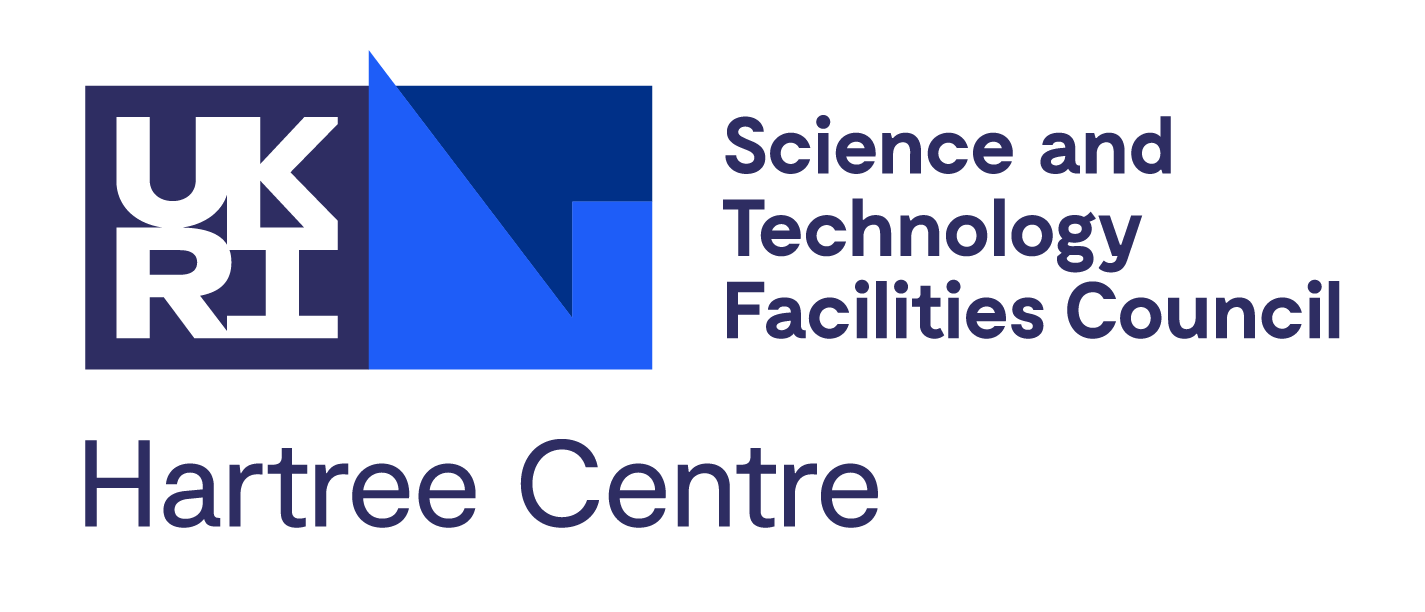Speakers and Presentation Slides
| Welcome & Introduction: Professor Wes Armor (University of Oxford) |  |
| Presentation: Welcome & Introduction | |
| Dave Cable (STFC Hartree Centre) |  |
With more than 30 years’ experience in managing compute and data systems Dave Cable is the Hartree Centre’s lead on infrastructure and compliance matters. He is accountable for the operation, maintenance, and support of Hartree Centre’s large-scale computing platforms. These services are delivered through three operational groups: Technical Solutions and Operations, Customer Services, and Compliance. Dave is also accountable for the operation of Hartree Centre’s integrated management system which encompasses quality (ISO9001) and information security (ISO27001). Dave is currently the senior user representing Hartree Centre’s requirements in the construction of a new SuperComputing Centre (SCC) at STFC Daresbury Laboratory |
|
| Presentation: Reflections on the JADE service | |
| Professor Stephen Roberts (University of Oxford) |  |
Steve Roberts is Professor of Machine Learning in the Information Engineering Group at Oxford. He is a Fellow of the Royal Academy of Engineering, the Royal Statistical Society, the IET & ELLIS.eu and is co-founder of the Oxford spin-out company Mind Foundry. He was Director of the Oxford-Man Institute of Quantitative Finance (2015-2021) and founding-Director of the Centre for Doctoral Training in Autonomous Intelligent Machines and Systems in 2015. Steve is PI of Oxford’s Eric & Wendy Schmidt AI in Science Programme, co-lead of the Intelligent Earth Centre for Doctoral Training and Director of the Oxford-Martin School Programme on AI Security. His interests lie in the theory, methodology and application of machine learning to large-scale, real-world problem domains. His current research includes theory and methodology as well as applications in astrophysics, AI model safety, security & resilience, climate & environment, ecology, finance and engineering systems. |
|
| Presentation: Instability is all you need - the surprising dynamics of learning in deep models | |
| Professor Xiaowen Dong (University of Oxford) |  |
Associate Professor at the Department of Engineering Science, University of Oxford, Member of ML Research Group & Oxford-Man Institute Xiaowen Dong is an associate professor in the Department of Engineering Science at the University of Oxford, where he is a member of both the Machine Learning Research Group and the Oxford-Man Institute. Prior to joining Oxford, he was a postdoctoral associate in the MIT Media Lab, and received his PhD degree from the Swiss Federal Institute of Technology (EPFL), Lausanne, Switzerland. His main research interests concern signal processing and machine learning techniques for analysing data with complex structures, as well as their applications in social, urban, and financial network analysis. |
|
| Presentation: Recent advances in learning with graphs | |
| David Llewellyn-Jones (The Alan Turing Institute) |  |
David is a Research Data Scientist at The Alan Turing Institute. In previous lives he's worked in industry as a computer games programmer and developer of a commercial Linux-based smartphone operating system. David has a BA in Maths and Philosophy from Oxford and a PhD in Mathematical Model Theory from Birmingham. The majority of his research career was spent as a Reader in Computer Security at Liverpool John Moores University followed by stint at the Department of Computing Science and Technology in Cambridge. Currently David is part of the Research Computing Platforms team within the Research Engineering Group at The Alan Turing Institute. The team's job is to support researchers to gain access and make full use of cloud and HPC platforms. In AI this typically involves tackling the challenges of effective distributed computation. David is passionate about open source and open research. He's involved in open source software development and the mobile Linux open source community. He's especially interested in the increasing intersection between open source, HPC and mobile Linux development. |
|
| Presentation: Collaborative Computing: JADE's Impact at the Alan Turing Institute | |
| Yishun Lu (University of Oxford) |  |
Yishun Lu is a final-year DPhil student at the Oxford e-Research Centre. He completed a four-year master’s degree in engineering at Hertford College, University of Oxford. His research focuses on high-performance computing and AI for Science (AI4S), with a passion for applying AI to tackle challenges in efficient computing and scientific research. |
|
| Presentation: AI-Driven Voxel-wise Segmentation Pipeline for X-ray Tomography in Crystallography | |
| Keynote: Dr Sergio Perez (NVidia) |  |
Dr Sergio Perez is a Solution Architect at NVIDIA specialised in training and inference of LLMs. He has experience both in research and industrial application of Generative AI and scientific computing, having completed his President's PhD Scholar in computational fluid dynamics from Imperial College London and worked as an AI engineer at Graphcore and Amazon. At NVIDIA, Sergio works alongside AI developers in public supercomputer centres and sectors such as energy, automotive, finance, telecommunications, and internet services. He has contributed to production applications of LLMs covering RAG systems, optimization of inference servers, pre-training of LLMs from scratch, custom evaluation of LLMs and quantisation leveraging FP8 formats. Sergio has also contributed to Coursera courses on Deep Learning with Tensorflow, with more than 50k students worldwide. These courses also form part of the MSc in Machine Learning at Imperial College London. Sergio is also an active researcher publishing at the frontier of AI and scientific computing, having recently published as first-author at conferences like NeurIPS. |
|
| Presentation: How NVIDIA Enables Scientific Breakthroughs Today | |